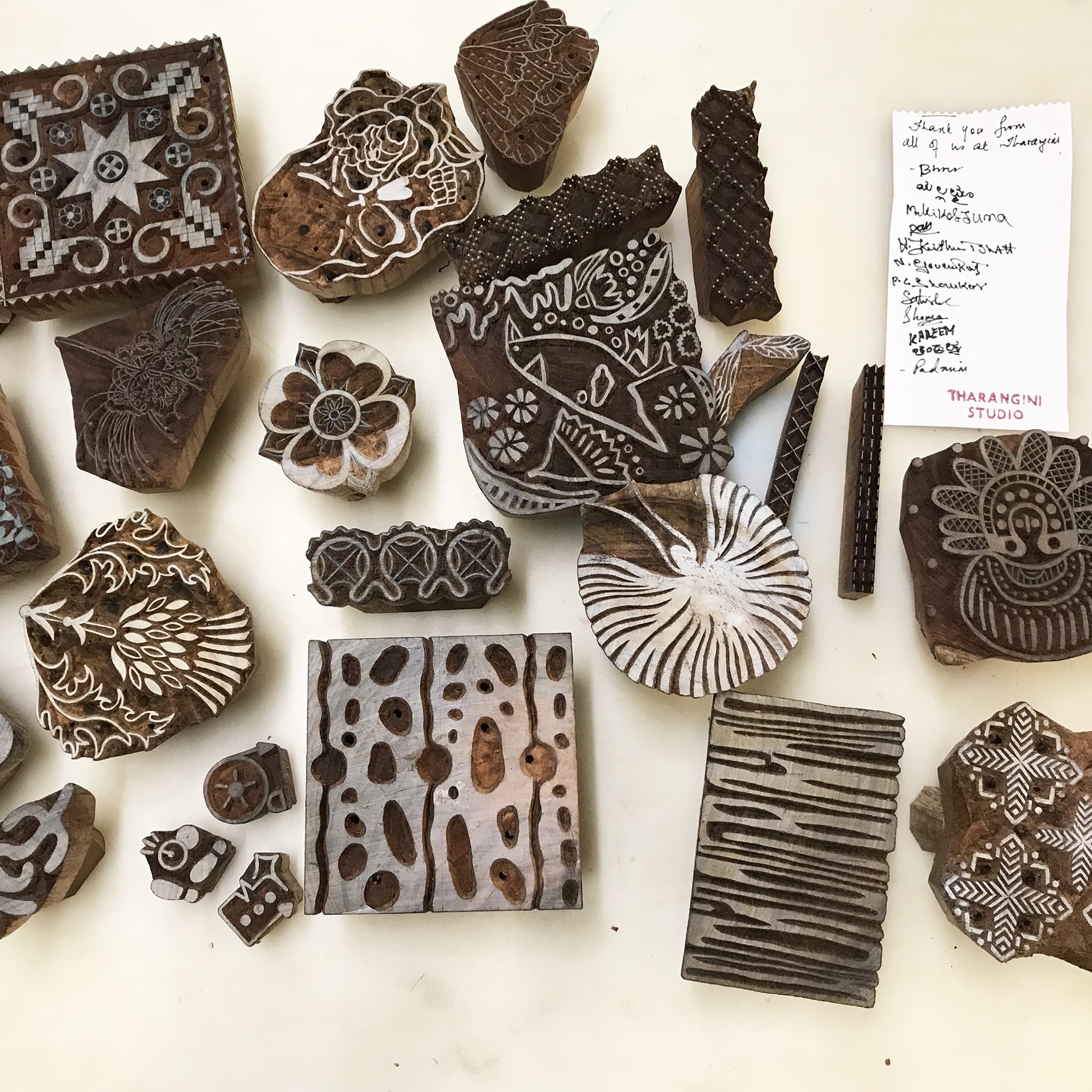Post-COVID craft education
Reflections on a virtual artisan woodblock studio exchange between Australia and India
DOI:
https://doi.org/10.7577/formakademisk.5417Emneord (Nøkkelord):
Tangible and intangible knowledge,, artisan craft, online global studio, cross-cultural exchangeSammendrag
This paper presents a hybrid model of teaching and learning that proposes new possibilities for exchanging tangible and intangible cross-cultural knowledge in textile craft education. The paper aims to demonstrate how online platforms can be used creatively to disseminate traditional craft knowledge and skills in new ways. The discussion centres on a unique virtual global studio between fashion and textile undergraduate students at the University of Technology Sydney and on an artisanal woodblock print studio, Tharangini, based in Bengaluru (Bangalore), India. The hybrid workshop was an adaptation of the studio in response to travel restrictions caused by the pandemic. The author argues that while the internet cannot replace the immersive cultural experience of studying in another country, digital platforms have a place alongside teaching to offer otherwise impossible opportunities. This paper explores a methodology for disseminating craft knowledge and skills across cultures through a combination of online and in-house practicum. Classes were structured around weekly Zoom sessions with Director Padmini Govind, where sustainable approaches to print production were disseminated through a suite of commissioned films and hand-carved woodblocks to explore on campus. The results show how this unique adaptation allowed students to interact with the artisan craft of woodblock printing in rich and varied ways, and it proposes that this novel hybrid model can be creatively adapted to future craft education in the 2020s.
Referanser
Benvenuit, S., Heikkinen S., Ip, T., & Younis, Z. (2017). Introduction to authentic learning-environments, experiences and field work. In A. Horsted, C. Nygard, J. Branch, & S. Hayes (Eds.), Innovative teaching and learning in higher Education (pp. 269–282). Libri Publishing.
Brown, J. S., Collins, A., & Duguid, P. (1989). Situated cognition and the culture of learning. Educational Researcher, 18(1), 32¬–42. https://doi.org/10.3102/0013189X018001032
Carter, P. (2004). Material thinking. Melbourne University Press.
Clifton-Cunningham, A., & Heffer, C. (2022). Crossing the cultural aisle from Australia to India: Transforming studio learning through artisan textile workshops. In W. Pangle, K. Stanley-Bohn, A. Dasen, J. Batzner, & H. Trommer-Beardslee (Eds.), Removing the educational silos: Models of interdisciplinary and multi-disciplinary education (pp. 127–146, 1st ed.). Intellect Books.
Dormer, P. (1997). The language and practical philosophy of craft. In P. Dormer (Ed.), The culture of craft (pp. 219–230). Manchester University Press.
Dhasmana, S. (2023, April 4-5). Restoring artisan esteem [Conference presentation]. In 25th Annual IFFTI Conference 2023, Otago Museum, New Zealand.
Ingold, T. (2007). Lines, a brief history. Routledge. https://doi.org/10.4324/9780203961155
Lantry, J. (2015). Artisan culture: Rethinking sustainability through collaborative exchange between emerging Australian designers and Indian artisans in fashion and textiles [Unpublished master’s thesis]. University of Technology Sydney.
Lee, Y. (2020). Surface and apparition: The immateriality of modern surface. Bloomsbury Press. https://doi.org/10.5040/9781350130470
Omotoso, M. (2023, February 1). Who made my clothes movement how it began. Fashion Insiders & Co. https://fashioninsiders.co/features/inspiration/who-made-my-clothes-movement/.
Schön, D. A. (1983). The reflective practitioner: How professionals think in action. Routledge.
Sennett, R. (2008). The craftsman. Yale University Press.
Vaughan, L. (Ed.). (2017). Practice-based design research. Bloomsbury. https://doi.org/10.5040/9781474267830

Nedlastinger
Publisert
Hvordan referere
Utgave
Seksjon
Lisens
Opphavsrett 2023 Cecilia Heffer

Dette verket er lisensiert under Creative Commons Attribution-NoDerivatives 4.0 International License.
- Forfatteren(e) beholder sin opphavs- og kopieringsrett til eget manuskript, men gir tidsskriftet varig rett til 1) å fremføre manuskriptet for offentligheten i den opprinnelig publiserte digitale form, og 2) å registreres og siteres som første publisering av manuskriptet.
- Forfatteren må selv forvalte sine økonomiske kopieringsrettigheter overfor eventuell tredjepart.
- Tidsskriftet gir ingen økonomisk eller annen kompensasjon for innsendte bidrag, medmindre det er gjort særskilt avtale om dette med forfatteren(e).
- Tidsskriftet plikter å arkivere manuskriptet (inklusive metadata) i den opprinnelig publiserte digitale form, i minst ett dertil egnet åpent tilgjengelig langtidsarkiv for digitalt materiell, som for eksempel i de norske universitetenes institusjonsarkiv innen rammen av NORA-samarbeidet.
Verket vil bli publisert OpenAccess med en Creative Commons 4.0-lisens som tillater alle å lese, dele og tilpasse innholdet, også kommersielt, under lisensvilkårene:
Dette verket må tilskrives/ krediteres på riktig måte, en lenke må gis til CC-BY 4.0-lisensen, og endringer som er gjort må angis på en rimelig måte, men ikke på noen måte som antyder at lisensgiveren støtter deg eller din bruk.



